|
Parents often ask us, “what is the best strategy to help my child practice ACT at home?” My first answer is always to educate yourself on what it is. Attend parent workshops, do some reading, or listen to a podcast. And learn the strategies that help us defuse from a difficult thought, allowing us to move forward in a direction that we value. In order to teach our kids something, we need to understand it and embrace it ourselves. Although there are many great strategies to teach your child, it is much more important how you teach them. How can you set up their environment so that they can naturally practice these skills they already know? How can you provide opportunities that encourage them to use the language and strategies they’ve been taught at school and by you? How can you go beyond just teaching a skill, and instead teach present moment awareness as a whole? And there are so many ways to answer these questions. 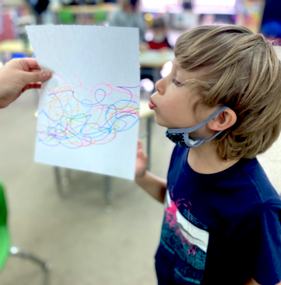 You can start by setting up opportunities to practice during routine activities, and then model it. I can never say this enough. Children are always learning from their environment, and you are the most important piece of that environment. When you are having a difficult time regulating your own emotions, or are feeling nervous, model the use of strategies and communicate it. Use ACT language to help them better understand what you are feeling, and why you are responding the way you are. For example, when I am feeling nervous about public speaking, I am noticeably anxious. I might tell my children, “I’m super nervous about my presentation tomorrow, and I’m sorry if you can notice that in my mood. Talking in front of people makes me nervous, and I feel it in my tummy, and my hands, and sometimes I talk too fast. But that’s because I’m worried about making mistakes and what people might think of me. I know this is a story I am telling myself, and I’m working on strategies to calm my nerves and defuse from these thoughts because this is important to me.” After giving an explanation of what I am feeling and why, I will suggest some known strategies, “I don’t want to miss out on things that are important to me, so I’m going to put that thought on a leaf and let it float down the stream, then I’m going to practice deep breathing so that I am present and I don’t miss out on what’s important. Do you want to help me practice?” In moments like this, it is not a sign of weakness to have big feelings, it is a learning opportunity for both you and your child. Normalize these feelings, and work through them using the strategies you want to see your child use. Throughout your everyday activities, there are many ways to model ACT yourself, and have your child practice. Set goals as a family, and committed actions to help move you closer to those goals, and then post them somewhere so that you can check in as a family. Validate your child’s feelings, and use acceptance and diffusion phrases when your child is having a hard thought, or a hard time moving away from a preferred activity. You might say, “I know you are feeling upset and that’s ok. But what strategy can we use right now?” Additionally, set up opportunities outside of these situations to practice present moment awareness. Mindfulness activities can be worked into many parts of your day, such as on the way to school, when energy levels are high, or as part of a bed time routine. It is also so important to remind your child of their strategies before they face something difficult and you know they’ll be needed. As a family, we recently had the opportunity to do this together. My 11 year old daughter is fearless on a race track, but that’s because she is confident there, and according to her, having a helmet where people can’t see her face also helps immensely. But she also plays the piano, and getting up to play in front of an audience is not an environment she feels comfortable in. On the way to her recent concert, we talked about strategies she could use before getting on stage. As I suggested she take a deep breath and focus on her music sheets, her five year old brother also suggested she count to 10 before starting, or do a “5 finger breath.” Prior to getting on stage she was noticeably nervous, but she got up there, and I watched her take a few seconds to focus on her breath before starting. She then played beautifully, and I was overwhelmed with emotion and pride, knowing that once again my children are learning to face their fears through the use of ACT strategies. Practicing these strategies outside of the big events where they are needed, allows our children to encompass acceptance and commitment training in a way that will generalize to so many other aspects of their lives as they grow. sFrom an ABA perspective, we know we need to reinforce the behaviour we want to see continue. So do not forget to validate feelings and reinforce your child when you see them using ACT language and strategies. As a community at OBA, we are all working together to create the best versions of ourselves and our children. A version that is psychologically flexible and able to navigate the world in a way that is mindful and values based. It takes a village, and as staff, we are always here to help you and your family!
Yours truly, Tina
0 Comments
This months guest contributor is Holly Kane. Holly is one of our invaluable RBT's here at OBA and is currently working on a program to support siblings of children with autism and other exceptionalities.
Navigating the world as a sibling of a neurodiverse person is a unique and enlightening experience, and it is one that is accompanied by many profound emotions and thoughts. When I entered adolescence, I searched for sibling support; hoping to connect and relate to others going through a similar experience. However, I never did find that support. This lit a spark in me to bring awareness to a group that has been overlooked. I dedicated my Bachelor of Social Work to researching the impact of ASD on families and siblings, and I continue to incorporate it into my current studies as a Master of ADS student. Although many of my own experiences have helped me to develop some of my favourite qualities and have influenced this career path, I have also chosen this career path to bring light to the complex reality that siblings can face. What I’ve learned through my personal and academic experience is that not one sibling’s experience will be the same, but we are all connected by playing the roles of protector, mentor, interpreter, mediator, teacher, etc., for our sibling. We begin filling these roles from a young age, whether we are incorporated into behaviour programming, attempting to educate our friends on ASD, training our family members on how to use our sibling’s communication system, or navigating the inevitable bullying. My role as a mentor and teacher began at four years old, as I was incorporated into my sister's play and social skills programs. These roles have now transpired into riding around on the city bus, learning her route to and from her work. I distinctly remember the day she got hired, as the first thing we did was research the route. However, we first got familiar with the bus by taking a celebratory dinner trip to McDonalds! Although we often take on these roles naturally, it is important to remember that we are our own person, not just a sibling. We have our own relationships, challenges, likes, dislikes, feelings, thoughts, and goals. As I said, being a sibling to a neurodiverse person is so beautifully complex and we are a group of individuals that would also benefit from support. If you are a parent reading this that has a child who has a neurodiverse sibling, I hope this has provided some perspective. If you are a sibling to someone who is neurodiverse, I hope you find solace in this message – you are not alone. Parents, while you and your child(ren) navigate this together, remember they are their own person, and their feelings, thoughts, and perspectives are valid. You can support their sibling journey by offering them emotional support and information about their siblings’ diagnoses, but the best way you can support them is to ask them what they need. At the end of the day, this is a unique challenge that life has presented to us, but please remember, you are not alone in this journey.
Yours truly, Holly  The holidays are fast approaching, and for our students and their families that comes with a lot of emotions. The holiday break means time spent together as a family, which brings happiness and excitement. But it also means changes to expectations and routine, which for some can be anxiety provoking. Not only do things become very busy, with a lot of people, noise, lines, and socializing, but things also calm down and become less structured. As we transition into December and the holiday spirit, our environments around us slowly begin to change. Our homes may be decorated, the music on the radio may change, television shows may become more festive, and the stores become busier. All of these things indicate that the holidays are approaching, and this alone can cause an increase in anxiety for some. It is important to watch for any indicators of anxiety as the holidays approach, to better prepare your child and yourself for success. Here are a few ideas to help prepare your family for a happy and less stressful break!
Every family is different, celebrating different holidays and with different expectations. But no one knows your child better than you, so incorporate what works best for your family! I hope this provides support in a way that allows you to have the best Holiday Season with loved ones! From my family to yours Happy Holidays, Tina The Orton-Gillingham approach was something that I had heard great things about. In fact, I was encouraged many times by colleagues to enroll in training as they had witnessed firsthand how amazing it is, and now I understand why. Just as Orton and Gillingham believed in keeping the best interest of each child their priority, I also held that belief close to my heart and I felt that I was making the best choices for my students each and every day. The sad thing is, you get caught up so much in twenty-first century learning and implementing technology that you sometimes get sidetracked from spending quality time interacting with your students. But it’s understandable; we live in a very fast paced world, where everything is about convenience. So why wouldn’t a student want to type their work, or use voice to text, and have spell check to support them with their spelling? They don’t have to write, and spelling is a non-issue when you have a screen doing it for you (depending on the child’s level of spelling). I quickly learned however, this is not the best way to support all of our students who struggle in areas of reading, spelling, and writing. Students, regardless of how they learn, still deserve the opportunity to learn through a multisensory approach. After completing training in OG Foundations, I felt liberated and saddened at the same time. I spent 12 years as a classroom teacher before moving into a curriculum support role. I taught to the best of my ability, and having a Montessori background I did indeed use valuable teaching methods that focused on a multisensory approach. But after spending time in this course and reading numerous resources, I now know that I could have done more to support my students. How is it that we spend time learning how to be a teacher, yet the information is not all correct? Then we follow a curriculum document that is meant to guide us as we deliver content; content that is supposed to teach students the most important components around reading, writing, and spelling. I am boggled now that we have one of the most important jobs which is teaching the youth who will in turn become the link to our future, yet valuable information and resources are not always at the forefront. In our training, the instructor did state that we only teach what we know, and yes while that is true and comforting, it is also our job to ask questions about what is beneficial and what cautions to take. This all resonated with me profoundly because I am working with students with such diverse needs and abilities and therefore understand that sitting back and just using what I learned before is not enough. OG Foundations was the first step to realizing that if we want to best support our students, we need to ask questions and discover the science behind teaching our students so we can implement the most effective treatment. Collaboration is key within any school environment, but even more important when you are working with students who have experienced failure and their mindset is tainted in the belief that they can do better. At OBA, we work together to change this mindset, and we do this through collaboration. This includes the many wonderful ideas and resources brought together through staff of different experiences and backgrounds. We bring together academics, ABA, and ACT in a way that is necessary to engage and teach our students. Looking at each child as an individual, and understanding that you need to support them based on their own personal differences is vital to their success. I’m thankful that the Orton-Gillingham approach is one that was not left unnoticed and that we are fortunate enough to bring it into collaboration within our OBA community. Yours Truly, Reta More Information on the O-G Approach What does community mean to you? This is a question we asked our OBA students as the 2021/2022 school year came to a close. The answers ranged from family, friends, and church to hockey, pets, and the cities they lived in. But a common answer among many students was OBA. And that’s exactly what OBA is to so many, a community of people who have come together with shared values to overcome the many obstacles that life throws at us. 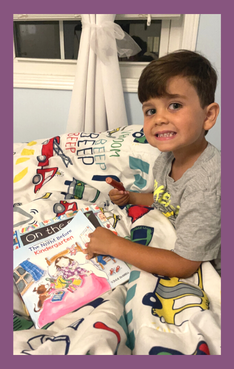 I started this job four years ago, not realizing the difference this community would make in my own life. And I think that’s what makes OBA so unique, we as staff really embrace all that we teach. In year one, we learned the ins and outs of Acceptance and Commitment Training (ACT) together. We practiced with our students, at meetings, and at training. And eventually, it became a part of our lives. It’s embedded in our language, the way we approach uncomfortable situations, and the way we parent. When you really embrace something, it becomes a passion. It becomes a way of living, and when our students see us modeling the behaviour we are teaching, it makes it that much more likely for them to embrace it in the same way. I knew that by practicing what we teach, my son’s life could also be changed. 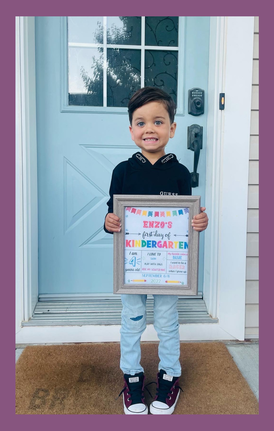 As a mom of a little boy starting his own adventure into JK this year, I really saw the effectiveness of what we teach and how my parenting style has changed because of this job. My boy had a really tough time transitioning to school on his first day and luckily we had the weekend to work on some strategies that would help him to be successful. We were able to talk about all the feelings he had, where he felt them (“My tummy of course Mom, I felt so sick!”), and what we can do when we feel that way. We labeled these things as feeling nervous, and practiced our five finger breathing all weekend. He came home on Monday and said to me, “Mommy, today was so good! I had so much fun! I was nervous at the start and I counted in my head, but I didn’t even need to do my five finger breathing! I knew I wasn’t sick and counting helped it go away!” My heart melted a little bit, and I knew that at four years old, he had already learned a way to deal with anxiety. I knew that by practicing what we teach, my son’s life could also be changed. And what a feeling that was! Being a part of the OBA community has changed my perspective in so many ways. We as staff, come from so many different paths in life, bringing with us different knowledge and experiences. But we have all come together for the same reason, to help our students academically, but more importantly to help them regulate their emotions and learn in a way that is guided by their own values. We teach our students through instruction and modeling, the importance of academics, healthy behaviour strategies, and the life skills that are all needed for a happy and autonomous life. We teach in a way that makes us unique in comparison to other schools. And I will forever be grateful for that! 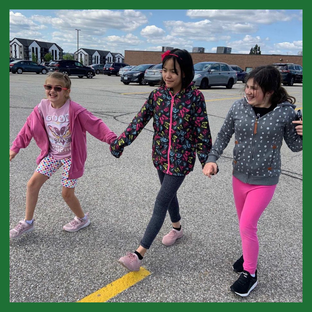 Welcome to our new OBA Monthly, where we will get to share with you some of our experiences and give some insight into what it is that makes us so unique. While also providing some helpful tools and strategies of course! Yours truly, Tina |
AuthorWrite something about yourself. No need to be fancy, just an overview. Archives
March 2024
Categories |
Oak Bridge Academy |
|
Registered Charity # 71154 4296 RR0001
|
Website designed by JS Websites
|
© Oak Bridge Academy, 2024 | All Rights Reserved
|
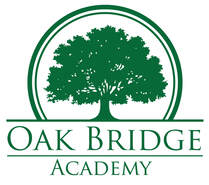
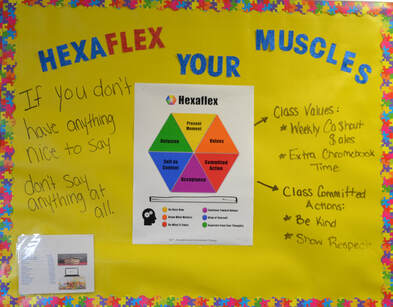
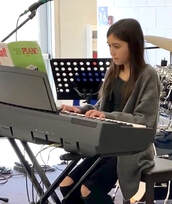
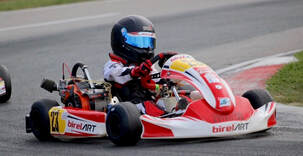


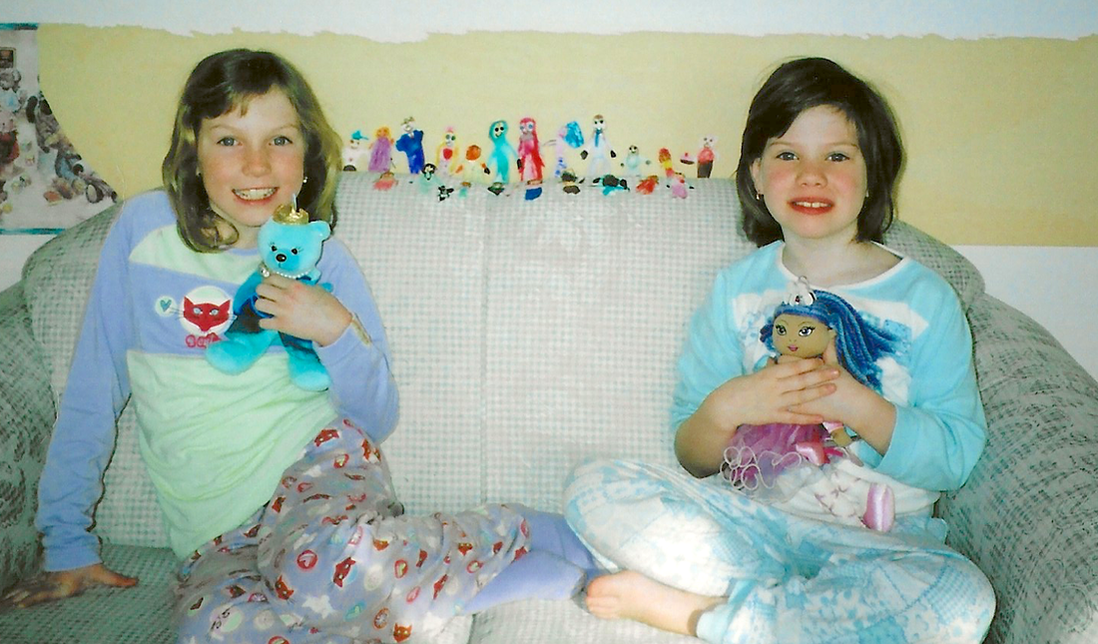

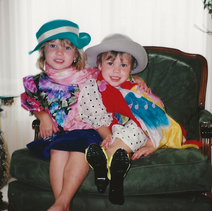
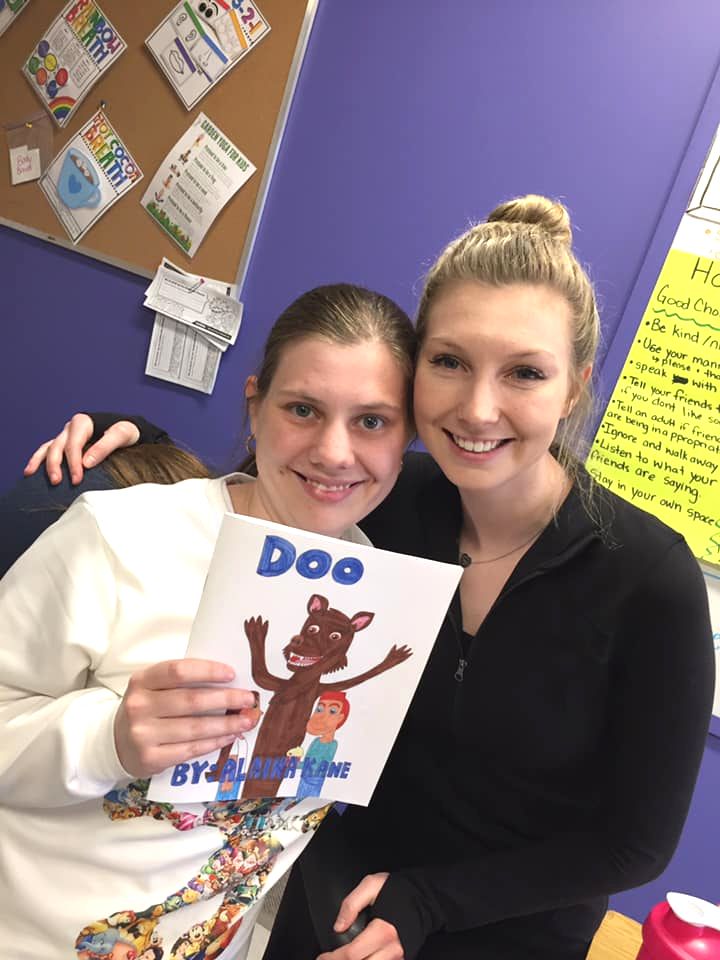

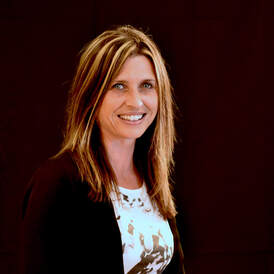
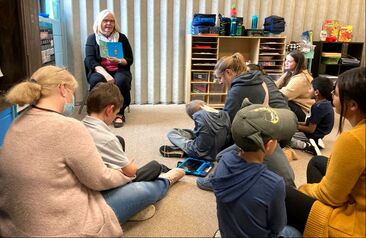
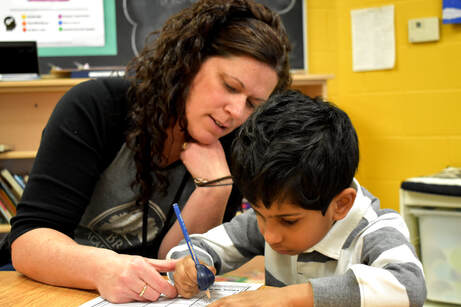
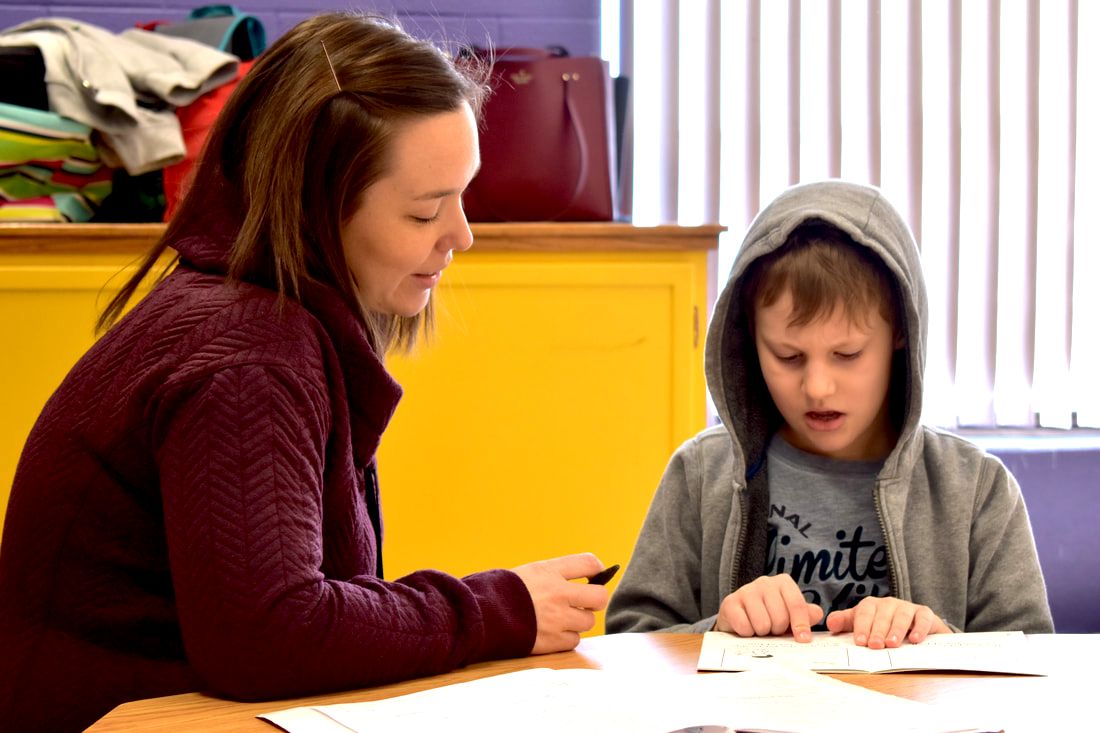
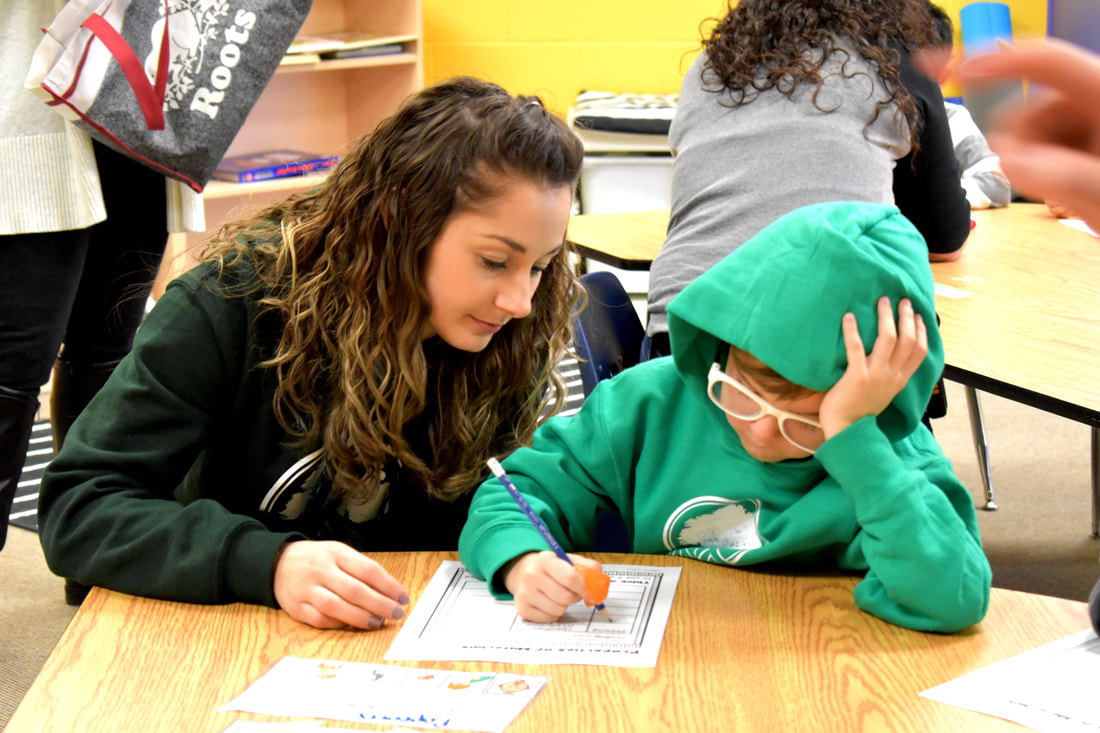
 RSS Feed
RSS Feed


